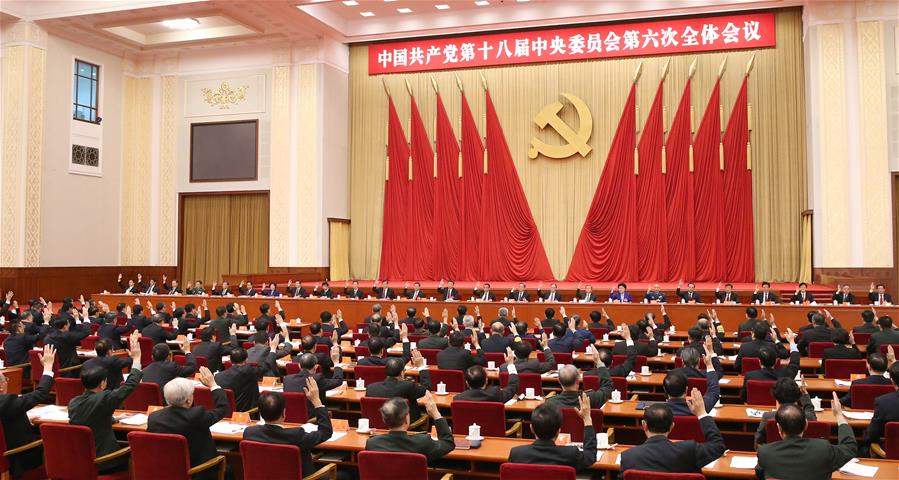Thu Aug 11, 2022
Thursday / August 11
China tariffs
China’s war games around Taiwan have led Biden administration officials to recalibrate their thinking on whether to scrap some tariffs or potentially impose others on Beijing.
President Joe Biden has not made a decision on the issue, as his administration tries to tamp down skyrocketing inflation.
White House has considered a combination of eliminating some tariffs, launching a new “Section 301” investigation into potential areas for additional tariffs, and expanding a list of tariff exclusions to aid U.S. companies that can only get certain supplies from China.
The tariffs make Chinese imports more expensive for U.S. companies, which, in turn, make products cost more for consumers. Bringing down inflation is a major goal for Biden, a Democrat, ahead of the November midterm elections which could shift control of one or both houses of Congress to Republicans.
But Beijing’s response to U.S. House Speaker Nancy Pelosi’s visit last week to Taiwan triggered a recalculation by administration officials. Biden administration is eager not to do anything that could be viewed by China as an escalation while also seeking to avoid being seen as retreating in the face of the communist country’s aggression.
US inflation
Prices that US consumers pay for a variety of goods and services rose 8.5% in July from a year ago, a slowing pace from the previous month due largely to a drop in gasoline prices.
On a monthly basis, prices were flat as energy prices broadly declined 4.6% and gasoline fell 7.7%.
Economists surveyed by Dow Jones were expecting headline CPI to increase 8.7% on an annual basis and 0.2% monthly.
Food is one component of the CPI that remained elevated in July, rising 1.1% after climbing 1.0% in June. The price of gasoline fell 7.7% in July.
In the 12 months through July, the CPI increased by a weaker-than-expected 8.5% following a 9.1% rise in June. Underlying inflation pressures, which exclude volatile food and energy components, also showed some green shoots despite remaining strong.
The core CPI rose monthly 0.3% in July, a 10-month low, after climbing 0.7% in June, but still increased 5.9% in the 12 months through July.
Japan cabinet shuffle
Japanese prime minister, Fumio Kishida, has removed ministers associated with the Unification church in a cabinet reshuffle amid a public outcry over his party’s ties to the religious movement.
The reshuffle comes just over a month after the murder of Shinzo Abe by a man who has said he targeted the former prime minister over his links to the church, which he blamed for his family’s financial ruin.
Abe, who was shot dead during a campaign speech, had sent telegrams and a congratulatory message to a group affiliated to the church. Its members are colloquially known as Moonies.
Japan’s market is closed for a holiday Thursday.
New SEC rules
The U.S. Securities and Exchange Commission (SEC) on Wednesday proposed a rule to improve the quality of disclosures it receives from large hedge funds about their investment strategies and leverage.
The proposed rule would expand reporting requirements for advisers and large hedge funds with a net asset value of at least $500 million when filing so-called Form PF with the SEC.
The new rule would require funds to provide more details on their investment strategy and exposure, including borrowing and financing arrangements, open positions and certain large positions. It would also require large hedge funds to report their cryptocurrency exposure, the SEC's Democratic chair, Gary Gensler, said.
Wall Street
Wall Street surged on Wednesday, putting the Nasdaq more than 20% above its June low as U.S. inflation slowed more than expected in July and raised hopes the Federal Reserve will become less aggressive on interest rates hikes.
The Dow Jones Industrial Average rose 535.1 points, or 1.63%, to 33,309.51, while the S&P 500 gained 87.77 points, or 2.13%, to 4,210.24 and the Nasdaq Composite added 360.88 points, or 2.89%, to 12,854.81.
It was the biggest single-day gain for both the Nasdaq and S&P 500 in two weeks, and for the Dow in three weeks. It was the highest close for the S&P 500 since early May.
